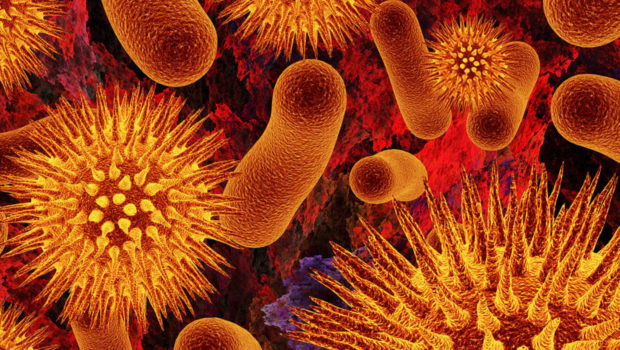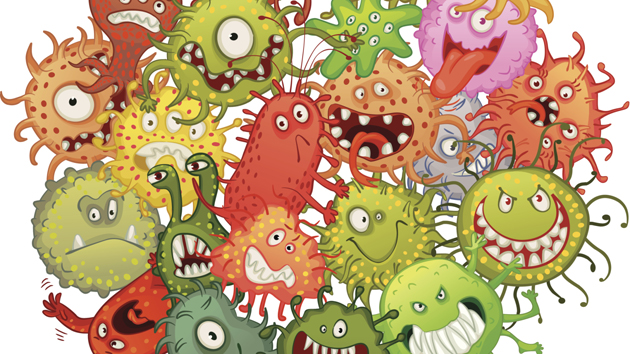
CLUE #10: You get sick often with infections
An infection is any damaging invasion of the body by a harmful microorganism. Unlike genetic diseases or deficiency diseases, infectious diseases require foreign pathogens. These can be bacteria, fungi, parasites, or viruses.
Infections by any of these agents can be either acute or chronic. Acute infections come and go rapidly; chronic infections develop more slowly and last longer.
While infections are nasty enough on their own, they also pose a more long-term danger. They can cause or complicate other chronic diseases, even diseases that aren’t contagious or typically associated with infectious agents.
What is often overlooked, however, is that many other ongoing health problems can be related to unhealthy digestive microflora as well.

Sometimes the issues are due to an overgrowth of pathogenic bacteria like Candida albicans, but they also may result from weaknesses in the gut membrane.
Healthy gut bacteria produce by-products that help keep the intestinal lining strong, and without enough good bacteria to manufacture these substances, the intestinal tract becomes highly susceptible to damage. Inflammation then leads to ulceration, which destroys areas of the mucosal lining of the intestinal wall.
These “breaks” allow disease-causing bacteria, toxins, and undigested food particles to pass (or “leak”) directly into the bloodstream, where they disrupt the body’s normal function in many ways. This is the basis of leaky gut syndrome.
Read my “Gut & Disease” article for more information on leaky gut syndrome.
